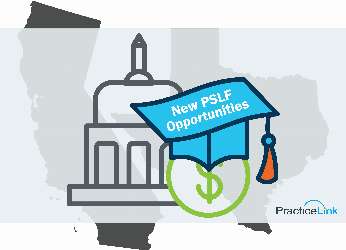
What feelings do you think physicians have when looking at their student loan balances? Is it peace, joy and tranquility?
If you’re thinking, "Ugh, I wish!" you’re not alone. Over 75% of physicians graduate with student loans, and their feelings often center around stress and panic, especially when faced with the reality of monthly payments. When these payments are stacked alongside other life expenses, it’s easy to see why physicians may prioritize quick fixes like student loan forgiveness when making career decisions.
As a recruiter, you play a critical role in helping physicians navigate these pressures. If you rely solely on loan repayment offers to attract candidates, you may miss opportunities to show them how their long-term financial and personal goals align with the positions you’re offering.
Shift the focus
Salary and student loan repayment forgiveness are often top considerations for physicians emerging from residency or fellowship. However, fear and anxiety often drive these decisions, leading physicians to accept roles that offer loan repayment benefits but may lack alignment with their career and lifestyle goals.
Rather than allowing financial pressures to dictate a physician’s decision, you can guide candidates to think holistically about their job offers. By analyzing multiple opportunities and considering both financial and personal factors, physicians are more likely to find roles that bring them satisfaction and stability.
The recruiter’s role
As a recruiter, you’re not just hiring talent; you’re fostering long-term relationships. Helping physicians look beyond immediate financial incentives shows your commitment to their well-being and career satisfaction.
Joelle Hennesey, director of recruitment for First Physicians Group, explains: "I tell physicians to really look at those financials because repaying their student loans doesn’t always have to come in the form of student loan forgiveness; it can come from a higher salary with higher income potential. And they need to consider if the job will be the best for their lifestyle and family."
Encouraging candidates to evaluate the bigger picture can help you attract the right physicians to your organization and improve retention rates. Help candidates weigh their options by asking them to consider the following:
• Is a lower salary with loan repayment or public service loan forgiveness the best financial decision?
• Would a higher salary with long-term growth potential pay off loans faster?
• Does the "happiness factor" outweigh financial incentives? Can they see themselves working in that practice and in that community? Will their family feel at home?
Collaborating with student loan specialists
To provide greater value to your candidates, consider partnering with certified student loan repayment specialists. These experts can help candidates analyze multiple job offers, comparing immediate loan repayment benefits with long-term salary potential and lifestyle considerations.
By connecting candidates with resources like certified student loan repayment specialists, you can help them:
• Reduce financial stress
• Evaluate job opportunities holistically
• Make decisions that align with their career and lifestyle goals
This approach not only builds trust but also positions your organization as a supportive and thoughtful employer. By shifting the focus from short-term loan repayment to long-term satisfaction and stability, you’ll attract and retain physicians who are truly committed to their roles - and to your organization’s success.
Joy Sorensen Navarre is president of Navigate and a recognized leader in student loan relief for physicians. With a focus on data-driven solutions, Navigate - a PracticeLink partner - helps doctors save money on their student loans while minimizing the risk of mistakes that can affect loan forgiveness.

Joy Sorrenson Navarre